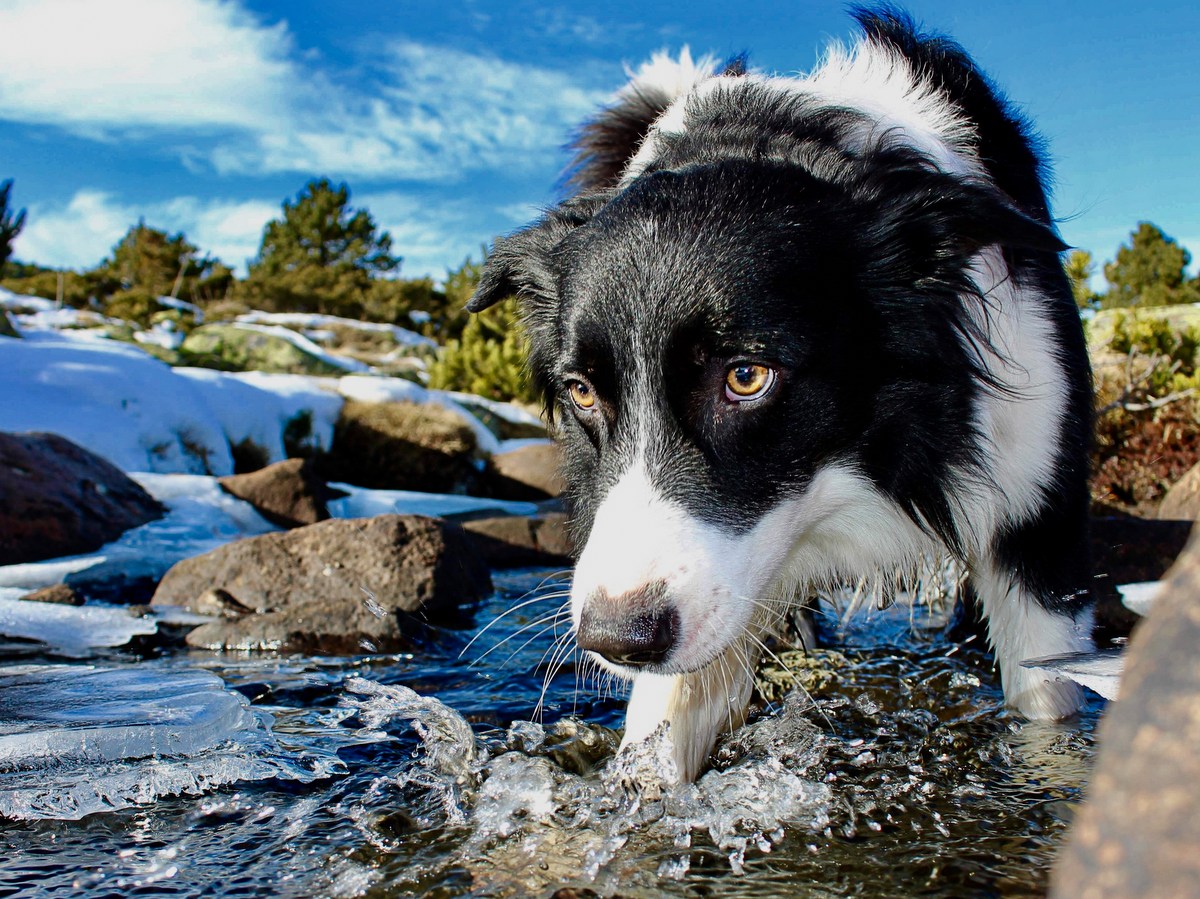
The sheep had borne the better part of the winter in the barn, though I cannot say they bore it with equanimity. Never had we cared for stock that made their annoyance for the cold any plainer. They would baa and meh at all hours as though protesting remaining in the barn when the bipedal of us dwelt in the house, in close proximity to a wood stove.
The family and I dealt with this eccentricity of the flock in quiet, wee hours grumbling at the caterwauling. Bridgid, though, downright glared at the barn whenever we let her out. Border collies are among the most intelligent breeds, but I wouldn't have thought before that one could hold a grudge.
Bridgid had a tendency to bed down with the flock in winters past, to keep an eye on them and keep away famished predators. Those flocks minded her on sight, yielding to her authority. Not these. If she faulted them for the lost hours of rest, the sheep held her in evident contempt. When ordered to urge them from the barn that we might muck it, she barked and growled to little effect until, it seemed, the sheep chose to mosey of their own accord, Bridgid bringing up the vexed rear.
Bridgid wasn't our first collie around the farm, and, bless her, she wouldn't be the last. It's the tragedy of dogs that we nurse them from barely off their mother's teat and will be holding them as they breathe their last. We embrace them their whole lives. If they are kind and brave, it is only because they have been shaped by the gifts of our goodness toward them. A dog wants for nothing more than the satisfaction of its master, which can craft a saint or a monster depending on its master's needs.
I say all that, but Bridgid had her willful streak. For that, she was more a member of the family than any of her predecessors. No matter her obstinacy, I wouldn't have traded her for a dozen better-trained dogs.
Maybe all that explains what happened that day. Maybe it is only the reasons we contrive afterward when life takes an inexorable turn for the absurd. It would take a better man to make such a distinction.
The day was warmer than February had any right to be, though on no account was it warm. I let out the flock and ordered Bridgid to lead them down to the beach some half-mile away from the farm. It is good exercise. I hoped I could run Bridgid through her paces and reinvigorate her hold over the flock.
They obeyed her on the trip to the beach. It was as if they finally understood their role in the world. I jogged paces behind them, relishing the cold air on my face, the salt air filling my lungs. I was no more than ten seconds behind them because, though a flock of sheep can run, they lack the confidence to venture much beyond their companions. Herd mentality is bred into them through countless generations. It is all they truly know, which is why dogs can govern them so adeptly. To a flock, a dog is the one animal who knows where it is going.
Bridgid barked them close to the tide washing in foam and ice. I called for her to herd them back, not relishing the notion of their persnickety bleats. Bridgid, for reasons I will never truly know, edged them further, closer to the lapping.
A dog's mind you can almost imagine. It takes no leap to guess which drive they lean against in their actions: food, mating, the needs of their pack of humans. You would think sheep are simpler, and maybe that is the case. Most of the sheep ran right into that calm sea at a near gallop, sinking first and then paddling toward the horizon, their oblong, white heads bobbing against the waves, their floppy ears leaving wakes. Two hesitated where the water met the sand. She ran ahead of them, growling, her tail wagging. The remaining two retreated into the sea, their only respite from her, padding faster to catch up to the flock.
As I yelled and waved my arms to call them back as the flock disappeared into the ocean. Bridgid loped to my side, nuzzling my hand as she sought for affectionate assurance that she had done right.
Thomm Quackenbush is an author and teacher in the Hudson Valley. He has published four novels in his Night's Dream series (We Shadows, Danse Macabre, Artificial Gods, and Flies to Wanton Boys). He has sold jewelry in Victorian England, confused children as a mad scientist, filed away more books than anyone has ever read, and tried to inspire the learning disabled, gifted, and adjudicated. He can cross one eye, raise one eyebrow, and once accidentally groped a ghost. When not writing, he can be found biking, hiking the Adirondacks, grazing on snacks at art openings, and keeping a straight face when listening to people tell him they are in touch with 164 species of interstellar beings.